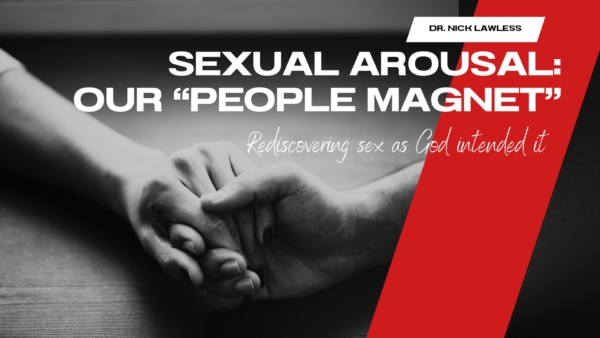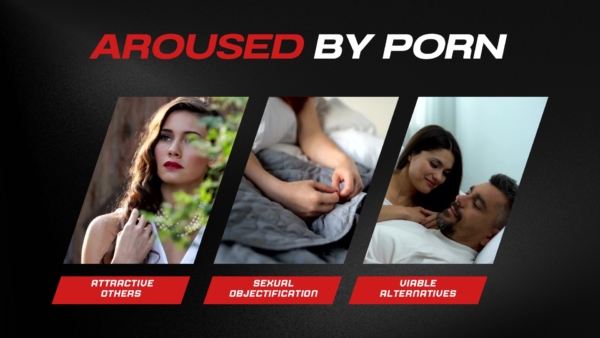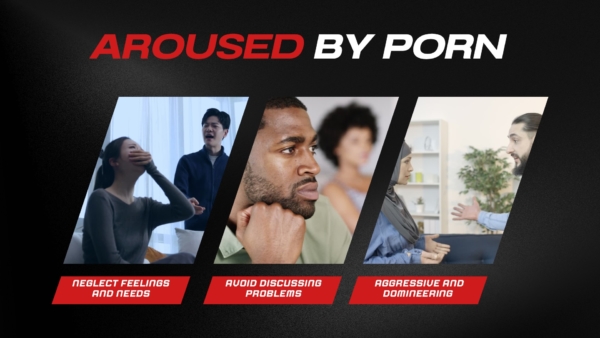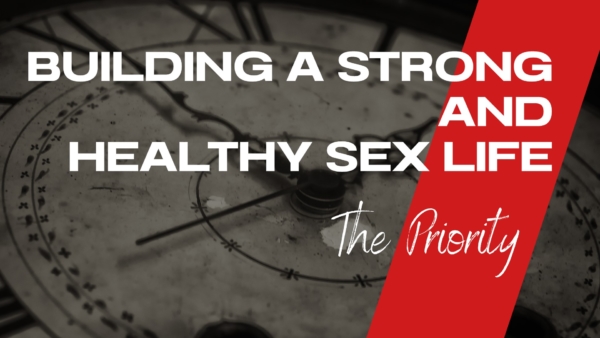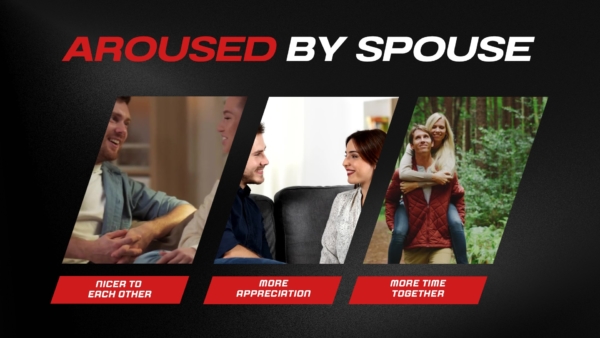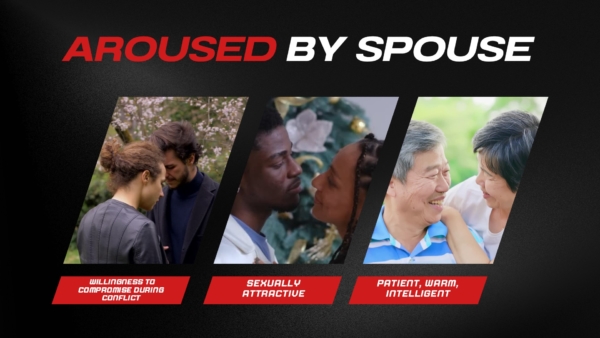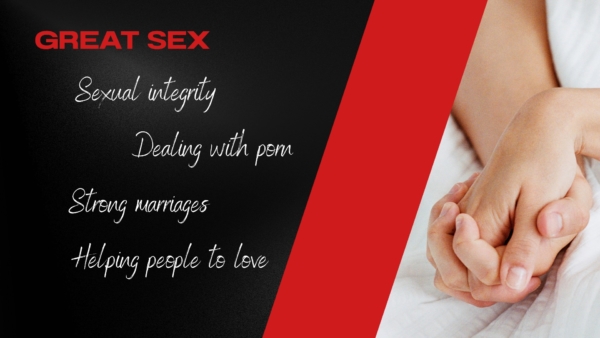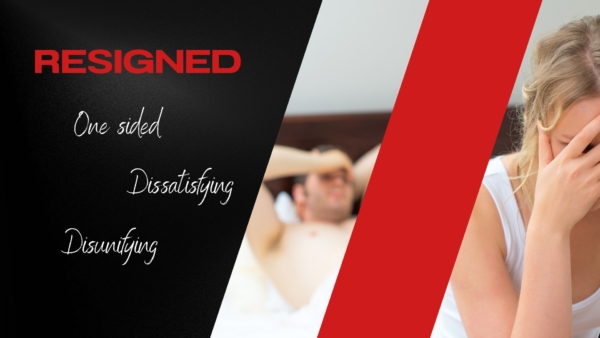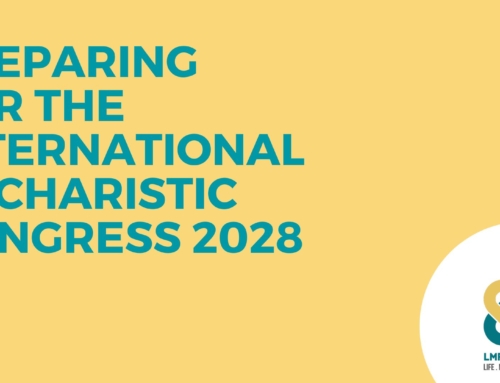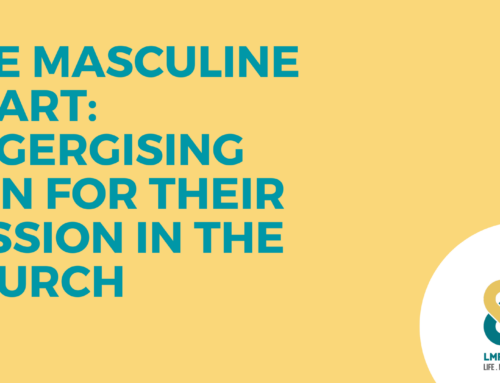
Dr Nicholas Lawless
Biography
Dr Nicholas Lawless is a Clinical Psychologist and Couple Therapist running his own private practice, DRT Psychology, in Melbourne’s south east. Dr Lawless spent 3 years researching pornography use and its impact on sexual and relationship functioning as part of his PhD, and he has published several peer-reviewed journal articles in the area.
Is porn always bad for marriages and if so, why? More importantly, what’s the answer? This talk will suggest some practical takeaways and resources for us as a Church based on scientific research and case studies of real people taken from Nick’s clinical work with couples.
Transcript
You know people always ask me what I did for my PhD and here's how the conversation goes I'll demonstrate…
"So what did you do for your PhD?" (with a big smile on their face)
"Oh I studied porn."
"Oh interesting." (awkward smile) In essence I watch their smile fade, and their face contort with discomfort, as their eyes start darting to find the nearest exit.
But it's true I've spent several years researching the impact of porn use on romantic relationships. Because although we can and should use faith and reason to understand that porn is not a good thing for marriages in today's day and age that will only get us so far. We also need to have the scientific evidence to back it up. Now there are many reasons why porn is no good for marriages. Betrayed spouses, unrealistic expectations, normalizing violence, and polygamy, among many other things.
All these reasons have scientific evidence to support them, but as important as these all are I'm going to leave these topics to others. Instead, what I'm going to focus on is the reason why porn is bad for marriages, no matter what the spouse thinks and no matter what the porn shows.
By definition porn is sexually arousing. So, when you use porn this means you are being aroused by other people that are not your spouse.
Think of sexual arousal as a God-given people magnet it is there to draw us towards our spouse. What we found is that porn regardless of the content hijacks the magnet that is our sexual system and turns it towards others and thus away from our spouse. To illustrate how this plays out on the ground I want you to meet a couple that came into my office Kate and Liam. It's not their real names.
These guys were a high conflict couple on the brink of separation. Now Liam was using porn regularly – how regular? – several times a week, sometimes multiple times a day. It was his primary way of soothing his stress and anxiety. He didn't see a problem with this after all he didn't watch the really bad stuff. Kate well she also didn't see this as an issue because, as she told me, "doesn't everyone use porn"?
Now even though neither one of them saw the porn as a problem Liam was frequently pointing his sexual arousal magnet away from his wife and as a result was disconnecting from the relationship both sexually and relationally. What do I mean by that?
Well, my research found that the more you're aroused by porn the more you pay attention to attractive others. The more you sexually objectify others and the more you see them as viable alternatives to your spouse.
What's more, you're more likely to neglect your spouse's feelings and needs. You're more likely to avoid discussing problems with your spouse and when you do communicate with them it is more likely to be aggressive and domineering. Which is exactly what Liam was doing with Kate. So how can we give these guys the best chance of saving their marriage? Well other than couple therapy they need us to point out the impact that porn is having on their marriage. But how we communicate this to Liam in particular is vital, because we need to get him to want to stop using porn. Here's how I would go about it. Establish what it is that Liam wants in the present, and then draw on research to illustrate how his porn use is getting in the way of that.
For example, "You want a great sex life with Kate? Right?"
"Yeah, absolutely more than anything."
"Okay so you want to get closer to Kate but when you use porn we know from research it actually changes the way that you see and interact with Kate and actually draws you away from her, do you see the problem?"
"Oh!"
Most people get this and while it's not the case that everyone will suddenly stop using porn forever after one conversation, at the very least a seed has been planted.
Now the resource that I use in these instances is actually one that I created myself. On one side it sums up the entire 265 pages of my thesis in a way that won't bore the living daylights out of people. On the other side it highlights numerous other potential consequences of porn use based on other people's research over the years. Mind you, when using research to discuss porn with people we can't take statistics out of context and be all alarmist about it, telling people that if they use porn once they'll go out and have a threesome with strangers. That's not true and it immediately discredits everything we are saying. Instead, we should say something like someone who uses porn repeatedly over time is significantly more likely to cheat on their spouse at some point. Because that is a statement that we can back up with evidence.
So, we want Liam to stop using porn and we can and should use science to motivate him to do so. But convincing someone that using porn is a problem is only half the answer. When discussing porn in our Catholic communities if this is all we do i.e. coming from a telling people off, banning porn perspective, although we should probably do that as well we are both missing a massive opportunity and cutting our Catholic legs out from beneath us. We actually run the risk of driving people further towards porn and further away from the Church by pushing them further down the shame cycle. Instead we need to present a vision what the sexual system is meant for in marriage and then help people get there. We need to be clear that not only is porn a problem but amazing married sex with our spouse is what God intended when he created our sexual system.
In other words, our job is not to tell people off for eating junk food because gosh they do look good them donuts, all those empty calories…
As Christopher West put it Christianity is not a starvation diet. No our job, is to both inspire them and teach them to cook amazing meals, so that they no longer want to eat the junk.
Not only are we likely to gain more traction taking this approach, but when I was creating a measure of porn use in romantic relationships I gathered data from over 1500 people on a number of different aspects of porn use. One of the things that we confirmed was that many people use porn because they aren't having sex, effectively using porn to replace their partner. So, it's important to keep in mind that although porn use can and does tear marriages apart, at the same time this often goes the other way where unhappy marriages lead people towards porn.
We're going to say hi to Donald and Nicola now. For a variety of reasons, they hadn't had sex for months before coming in to see me for couple therapy. Over those months Donald started using porn to replace the sex that he was no longer having.
"I don't like using porn but what else am I supposed to do a man has needs?" If I had a dollar for every time I'd heard a guy say that (I've actually heard several women say the same thing). Anyway, as Donald and Nicola engaged in couple therapy and worked through some of their personal issues they started having sex again. As a result, Donald stopped using porn. His hunger was being satiated by the amazing home cooked meals of married sex and he no longer had any appetite to gorge on the pornographic junk.
Now before you send me a bunch of hate mail, porn addiction is very real and I certainly see that in my practice a lot; we're going to hear from Steve about that soon. So a good sex life with your spouse does not bulletproof you against porn especially if you're using porn before you're married. However not everyone who uses porn is addicted to porn, just like not everyone who uses drugs is addicted to drugs. My research and clinical experience have made it abundantly clear that a lot of people are using porn because they aren't having sex with their spouse. They are just trying to take matters into their own hands. To be crystal clear I'm not saying that if Donald uses porn then it's Nicola's fault. Just like I would not say that if Nicola kicked Donald in the nuts then it's Donald's fault. But anyone training couple therapy knows that both partners play a role in the relationship dynamic and just like violence or other forms of infidelity, porn use does not happen in a vacuum. As couple therapists we never seek to justify or excuse behaviours like these, but we always seek to understand. Focusing Donald towards redirecting his sexual system, his sexual arousal magnet back towards Nicola, rather than crushing it all together was essential in addressing his porn use.
Helping Donald and Nicola to discover amazing married sex is not just important in combating his porn use though, but also in strengthening their marriage and helping them to love one another not just inside but also outside of the bedroom. Rolling with this idea of the sexual arousal magnet, my research found that the more Donald and Nicola feel sexually aroused by each other, the nicer they'll be to each other. The more they will appreciate each other and be physically affectionate. And the more they'll want to spend time together.
They will be more willing to compromise during conflict and to see each other as not only sexually attractive but also patient warm and even intelligent.
For those who are wondering we found this was the case for both men and women. Knowing that, it's not surprising that Donald and Nicola told me our relationship is the best it has ever been. We feel closer and more connected than we ever have. So what's the point? Well, creating and maintaining a great sex life is not only helpful in developing sexual integrity and dealing with porn but is a key part of building strong marriages and helping people to love. The very point of life itself and the reason why porn is such an issue in the first place is because it gets in the way of this. How can we help people develop strong, healthy sex lives?
That's a big question but taking down the barriers is a good start. At times there is a physical issue which requires medication, or perhaps a physiological treatment of some sort but in most cases the biggest barriers to sex are psychological. For instance, common mental health disorders such as depression, anxiety, and PTSD (and ironically the anti-depressant medication often used to treat them) more often than not reduce libido and can get in the way of healthy sex life and this is where individual therapy may be necessary. At the same time relationship dysfunction such as frequent and intense conflict, or drifting of heart and falling out of love will usually prevent much by way of sex and sexual arousal. This is where couple therapy might come into play. As was the case for Donald and Nicola in many instances individual and or couple therapy will be sufficient without ever focusing on sex itself in the therapy process, because once you remove the barriers people often get there themselves.
But for some, sex therapy is necessary and yes morally permissible even for Catholics. We just need to be discerning about who we refer them to, so that they don't get told to have sex with other people or something to spice up their boring marriage. This leads into my final point.
Married Catholics need good practical sex education. Too many of us Catholics have been led to believe that the only way to have sex without sinning is in the bed, under the covers, with the lights off, our eyes shut, in the missionary position, whilst saying the rosary less we feel any pleasure. Now I jest, but in all seriousness if couples believe that sexual intercourse is the only sexual act that is moral in the bedroom, and at the same time research tells us that many women struggle to orgasm through sexual intercourse, then these couples end up resigning themselves to sex being a one-sided, dissatisfying and disunifying affair.
What an absolute tragedy. Thankfully that is not the church's position on sex. Everyone knows us Catholics are open to life, but many people don't know but at the same time we place a super high importance on the unitive aspect of sex.
In fact our latest Pope turned Saint John Paul ll said that if a man orgasms before his wife then it is his duty to ensure his wife's sexual satisfaction through oral or manual stimulation should she want that. Now that's more like it! In a perfect world my parents would have taught me this, among many other things but my parents, like so many other faithful Catholics, didn't know what the church taught about sex themselves. So how were they supposed to teach me? In the end I spent many years doing my own personal research into what the church teaches about sex and along the way I found it very hard to discern good practical answers from amongst the swamp of the internet, where Catholics are so often divided and at war with each other.
So, here's the leg up that I wish I had a decade ago. Theology the body is a wonderful starting point. But for some specific books you can check out these books by Christopher West or Dr Gregory Popchaks' book – get this – "Holy sex: a Catholic guide to toe-curling, mind-blowing, infallible loving" what a title! But in addition to these books I want to recommend the sex education course for married Catholics that is about to be launched in October via the website Catholic intimacy.
The guy who runs this site James Walther is an American Catholic sex coach with training in both Theology and sexology. We've had a chat and I've read a lot of his stuff and I found his position to be very balanced and well considered. This course starts by covering the basics of reproductive biology. Now some of you might roll your eyes thinking well that's a bit overly basic, but we can't take this for granted and why not? I have treated a Catholic couple who had been married for a year and had never actually had sexual intercourse because they didn't know how – and they didn't even realize they hadn't. Long after their wedding they were still yet to consummate their marriage, what a tragedy! Now these two wanted kids but that was never going to happen now was it? Anyway, back to the course, it also covers the psychology of sex and gives specific practical answers about Catholic teachings on foreplay, positions, orgasms and more.
So, let's wrap this up. In summary, we need to address porn use in romantic relationships, because the sexual arousal we feel when we use porn draws us away from our spouse. However, we also need to focus on sex because as God designed and scientific research has confirmed, feeling sexual arousal by a spouse is a wonderful gift that helps us to love both inside and outside of the bedroom. To do this we need to address the many psychological barriers that get in the way of this and provide practical theologically sound sex education. Thank you.
Links mentioned:
- Theology of the Body – Saint Pope John Paul ll
https://stmarys-waco.org/documents/2016/9/theology_of_the_body.pdf - Holy Sex!: A Catholic Guide to Toe-Curling, Mind-Blowing, Infallible Loving
https://www.amazon.com.au/Holy-Sex-Gregory-K-Popcak/dp/0824524713 - Good News About Sex & Marriage: Answers to Your Honest Questions about Catholic Teaching – Christopher West
https://veritatis.com.au/product/good-news-about-sex-marriage/ - Heaven's Song: Sexual Love as it was Meant to Be – Christopher West
https://www.amazon.com.au/Heavens-Song-Sexual-Love-Meant/dp/1934217468 - Catholic Intimacy Courses: https://www.catholicintimacy.com/courses
Access presentation PowerPoint slide here: Sexual Arousal Our People Magnet.pptx
Three main points from this talk:
Impact of Porn on Marital Relationships: Dr Lawless emphasizes that porn use distracts sexual arousal away from one's spouse, leading to emotional and relational disconnection. Regular consumption of porn can shift a person's attention towards others, impairing intimacy and communication in the marriage.
Addressing Underlying Issues: Many individuals turn to porn due to dissatisfaction in their sexual relationships. Therefore, improving the sexual connection with one's spouse is crucial. Therapy—both individual and couples—can help address psychological barriers and relationship dysfunction, facilitating a healthier sex life.
Need for Comprehensive Sex Education: The talk advocates for practical, theology-based sex education within the Catholic community to correct misconceptions about marital intimacy. This education should include open discussions about sexual satisfaction, different aspects of sexual expression, and a more positive view of marital sexuality, moving beyond restrictive narratives.


